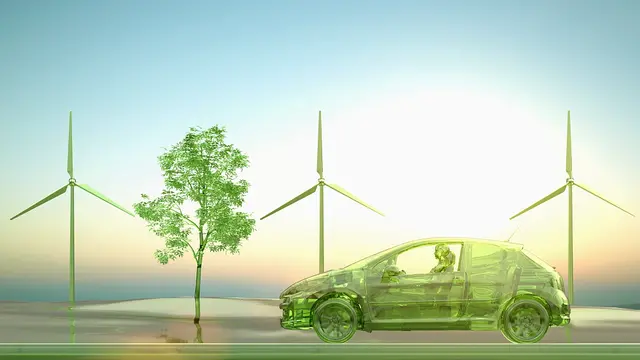2019 has been a special year for the new energy vehicle (NEV) industry in China because it marks the 10th year since the government introduced subsidies for NEVs.
The NEV industry has been grown rapidly in the past 10 years.
Data released by China's Ministry of Public Security this January shows NEV ownership nationwide in 2018 reached 2.61 million, 1.09 percent of all cars. The number increased by 1.07 million, or 70 percent, compared with 2017.
"The industry was in a tough spot from 2010 to 2013," Pang Yicheng, founder of NEVs information website D1EV, told CGTN, adding that the turning point was in 2013 when Tesla announced a profitable quarter.
"That was a milestone… Before the announcement, no one believed that making NEVs could make money," he said.
The development of the Chinese NEV industry started its rapid growth in 2014.
Pang said China had less NEVs than the U.S. in 2014. "We surpassed the U.S. in less than a year."
Pang Yicheng, founder of D1EV. /CGTN Photo
In 2018, NEV sales in China exceeded 1.2 million, equal to sales in the U.S., Europe and Japan combined.
However, sales encountered its first-ever negative growth in July this year. And the suspension of government subsidies nationwide by the end of 2020 has also caused concern regarding the future of NEVs in China.
Industry experts believe that market will become user-driven, and the key is to serve users through technology and create NEV brands that are widely accepted by the public.
Xiao Yong, deputy general manager of GAC New Energy, believes manufacturers should use technology to solve consumer pain points.
"First is to reassure users' range anxiety," Xiao told CGTN. "Users hope their cars can run 600 kilometers on one charge, so they don't have to constantly look for charging piles."
Xiao Yong, deputy general manager of GAC New Energy. /CGTN Photo
He said the deployment of charging piles needs to be pushed by the government. "Users' range anxiety will be solved if there are more charging piles than gas stations."
Xiao said that NEVs have to show their competitiveness in intelligence to compete with traditional vehicles.
"We need to bring a real 'smart car' to users… it might be hard for traditional cars to achieve, but it's easy for electrical vehicles," he said, adding that users could be able to experience fully smart vehicles in two years.
"Imagine if your car could park itself after you got off, it'll be super cool."
Eco-friendly has also been a key word for NEVs.
"We can't shift the costs for environment protection to customers… We need to find ways to lower the costs when subsidies are suspended, so customers can help protect the environment without spending extra money," Xiao told CGTN.
(CGTN)
 简体中文
简体中文

